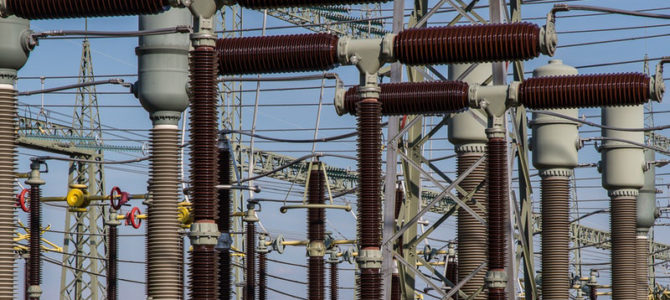Authors: Edward M. Browne and Shaun Pandit (CEO Early Bird Power)
While everyone in Washington was arguing about the pros and cons of the recently passed tax bill, an unexpected benefit for your healthcare facility may be a saving on utility bills.
But your savings could depend on where you get your utilities.
Do Federal Tax cuts automatically mean cheaper power?
According to the New York Times (Power Companies Got a Tax Cut. Will Your Bill Reflect It?, January 9, 2018), newly passed laws could save power companies billions of dollars on their tax bills. Economists from the Wharton School at the University of Pennsylvania estimate that the energy industry will see immediate reductions of $1B this year alone. By 2021, savings are estimated to grow to $5B. This translates to about a 0.5% reduction in electricity prices.
Are utility companies required to turn over this windfall to rate payers?
When Congress passed the tax cut, the law reduced tax rates for corporations from 35% to 21%. This includes utility companies. Unlike most corporations, utilities are often investor-owned entities which have a monopoly on providing electricity and gas by region. Since there is no (or limited) competition to provide these utilities, rates are regulated.
State officials allow utilities to charge rates high enough to recoup their costs – which includes the cost of paying taxes. These same state officials periodically scrutinize rates to ensure that they are reasonable.
“When you’re insulated from market competition and subject to regulation, the benefits should mostly pass through to consumers,” said Jason Bordoff, director of Columbia University’s Center on Global Energy Policy in the New York Times article.
These same regulations may require that utilities turn that tax break back to their customers in the form of lower costs. But every state has different rules.
Massachusetts state regulators are pushing for lower rates for utility customers
In November 2017, Eversource Energy filed its basic service electric rates for Massachusetts customers for the period starting January 1, 2018. The new rate was a 20% increase over previous rates.
Massachusetts Attorney General Maura Healey opposed the rate increases when they were announced. After the tax cut passed, Healey filed a motion on December 20, 2017 with the Department of Public Utilities (DPU) asking the DPU to recalculate Eversource rate increases based on the reduction in corporate taxes.
Eversource listened – and reduced rates
The Boston Globe reported that the Massachusetts Department of Public Utilities set new rates to reflect the decreased taxes that Eversource would now pay. (Mass. Utilities Ordered to Set New Rates Based on Federal Tax Cuts, February 3, 2018) In a recent filing, Eversource said it would pass on the savings from the tax cuts to its customers in eastern and western Massachusetts.
“We look forward to seeing these rates adjusted promptly and are glad that the Department correctly recognized its obligation to ensure that customers receive these savings,” said Healey.
The rate reduction will save customers $56 million. These new reduced rates are retroactive back to January 1, 2018.
Customers in eastern Massachusetts will see a $35.4 million decrease in basic service electric rates instead of a $12.2 million increase. Customers in western Massachusetts will see a $16.5 million increase in basic service electric rates instead of a $24.8 million increase. The reduction is proportionally larger for eastern Massachusetts because rates in eastern Massachusetts are higher than western Massachusetts.
“[The tax cut] is a significant windfall for these entities,” said Healey, who organized the appeal. “It’s entirely appropriate for that savings to be passed on to ratepayers.”
What about other states?
States have some latitude about how to recoup the tax cuts for rate payers. Benefits could come in the form of rate cuts, rate freezes, or reductions in infrastructure costs on future projects.
As reported by The Inquirer (NJ Utility Passes Along $280M Federal Tax Cut, But Still Boosts Rates, January 12, 2018), the Public Service Electric and Gas Company asked the New Jersey Board of Public Utilities to approve a 1 percent increase in rates – its first rate increase in eight years. According to the utility, the small increase reflects the benefit of the recent federal corporate tax cut.
Illinois, Ohio, Virginia, Washington, Utah, Idaho, Colorado, Oregon, Maryland and Washington D.C. have already gone back to their utilities to negotiate more favorable terms for rate payers. Some states such as Montana and South Dakota are exploring rate freezes.
Is your state protecting the interests of its ratepayers?
Whether your healthcare institution is government-owned, non-profit, or for-profit, hospital facility managers should be aware of how Federal tax cuts may impact utility rates – and how this will affect your utility budget.
This is an important developing story that our members should track to ensure your healthcare facility gets the benefit of an accurate utility budget resulting from these tax cuts.
Want to learn more?
Here are a couple of articles about how the tax cuts are impacting utility bills.
8 Examples of Lower Power Bills Because of Tax Cuts, The Daily Signal, February 6, 2018
Some Utility Rates Could Go Down After U.S. Corporate Tax Cuts, CBS News Moneywatch, January 15, 2018
Federal Cuts Lead States to Eye Utility Rates, Deferred Taxes, Bloomberg News, February 6, 2018
